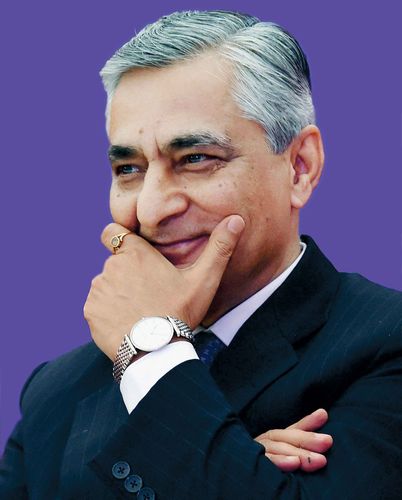Hardly a week after taking over as India's 43rd Chief Justice, Tirath Singh Thakur pledged his support for two cleanup drives of the executive: the odd-even car formula of the Delhi government and the Ganga plan of the Centre. In support of Delhi Chief Minister Arvind Kejriwal's initiative, Thakur said, “Judges are ready to walk down or even take a bus.” On the Ganga cleanup, he said: “We want to help them [government] by facilitating its cleaning through judicial orders.”
A much more difficult task awaits Thakur in his fiefdom. As a colleague of his in the apex court told THE WEEK: “His biggest challenge will be putting the house in order and restoration of its values and dignity.” But, for Thakur, the biggest challenge is the appointment of judges. After the Supreme Court struck down the law made by Parliament for setting up a National Judicial Appointments Commission, forcing Finance Minister Arun Jaitley to term the collegium system for appointment of judges as “a tyranny of the unelected”, Thakur confessed that “the job of the superior courts have become more difficult. Now we will have to live up to the expectations of the public. We have to ensure that the procedure is more transparent and merit is not ignored.” At present, there are 413 vacancies in the High Courts; around 30 million cases are pending in various courts. Thakur, therefore, has announced that 2016 will be the year for cleaning arrears. Improving judicial infrastructure and standards of law education also top his to-do list during his 13-month stint.
 Man with a mission: Chief Justice of India T.S. Thakur
Man with a mission: Chief Justice of India T.S. Thakur
Hailing from Ramban district in Jammu and Kashmir, Thakur started his career in his father's [judge-turned-politician D.D. Thakur] chamber in 1972. While serving as the chief justice of the Punjab and Haryana High Court in 2009, he was elevated to the Supreme Court.
Speaking of his “unassuming” nature, a former colleague in the Supreme Court remembered meeting Thakur at a hair-cutting saloon in Delhi's Khan Market. “When I went inside, I found Thakur and his son sitting there,” he said. “There are judges who prefer to keep their mingling with the public minimal. Thakur is not in that category.”
Thakur has a wide circle of friends from all walks of life. “So if you see ministers or senior politicians in Thakur's house, don't think they are seeking some help out of the way,” said a former 'brother judge' in the Supreme Court. “There are some judges with whom Thakur enjoys reciting Urdu couplets. In such evening sessions, some will sing songs from Hindi films; Thakur will enthral them with his collection of sher.”
Soon after Thakur took over as CJI, he joined the debate on intolerance by saying, “India is a vast country and some questions can be raised over its social fabric from certain quarters. But, we shouldn't feel scared or upset about it [so long as] there is an independent judiciary and the rule of law.... There should be [a] sprit of tolerance in an inclusive society and mutual respect and faith for each other's religions.”
A retired judge of the Supreme Court said: “He can ease any tense situation with his humour. Being a team player, he will be able to handle the new responsibility well. He is pragmatic, very diplomatic and, above all, amiable. He is not a man in a hurry, but steady and firm.”





